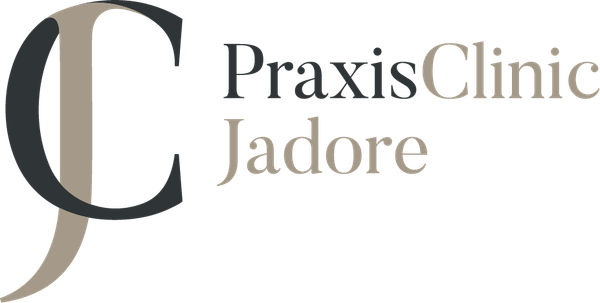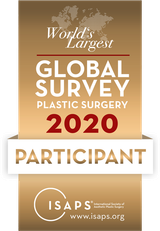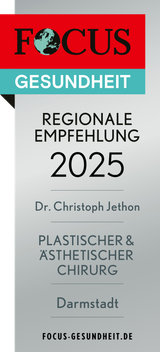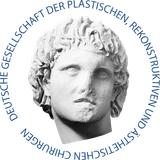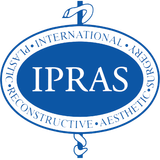::heading{tag="h2" text="Effective treatment of bruxism – muscle relaxation with targeted Botox therapy"}::
Bruxism – commonly referred to as teeth grinding – can make life difficult and permanently impair quality of life. Therapy with Botox injections at PraxisClinic Jadore can effectively contribute to relaxation of the chewing muscles and thereby alleviate teeth grinding.
Nighttime teeth grinding can permanently impair health. The most common cause of bruxism is the large masseter muscle being overactive, causing the teeth to be unconsciously pressed tightly together. This occurs mainly during sleep – so-called sleep bruxism – and less often during waking hours – awake bruxism.
Typical negative physical consequences include, in addition to wear of the teeth and implants, the permanent overloading of jaw bones and joints as well as the chewing muscles; the tensions can also spread to the entire head and neck and thus lead to ongoing psychological strain. The consequences: poor sleep and nocturnal stress states.
Other unpleasant consequences of bruxism also show visually in the face: due to its constant use, the masseter muscle enlarges, thereby deforming the otherwise even appearance and shape of the face with a more conspicuous look. People with slim facial features can therefore often experience a change in their facial contours as a side effect of teeth grinding.
The occlusal splint usually prescribed in such cases does protect the teeth and bite from the consequences of overuse, but it cannot resolve the cramping of the facial muscles. Although risk factors such as sleep disorders and sleep apnea, snoring, as well as fatigue and stress and anxiety, frequent consumption of alcohol and caffeine, smoking and certain medications favor bruxism, its true causes have not yet been clarified.
Treatment with Botox by Dr. Christoph Jethon at PraxisClinic Jadore can offer an effective alternative for treating teeth grinding. It acts more deeply by relaxing the masseter muscle itself.
::heading{tag="h2" text="How does Botox work in bruxism therapy?"}::
Botox injections are normally used in the face to relax the muscles responsible for wrinkle formation. The Botox used here is a natural toxin that contains an active ingredient which inhibits the nerve-to-muscle signal transmission and thereby reduces its activity. Through targeted injections with Botox, a physician can therefore relax individual muscles precisely.
This relaxing effect also applies to the masseter muscle, which, at the correct dosage, is only dampened in its activity but not hindered in its normal functions. After a Botox treatment you can therefore eat and chew normally, because the muscle is only relaxed enough for the teeth grinding to stop. This effect usually becomes apparent after about 1–2 weeks.
Through the resulting lasting relaxation of the chewing muscles, they regress to a normal size; the atrophy of the so-called masseter muscle as a side effect leads to a narrowing of the face, so that the face not only appears overall more relaxed but the previously unnatural, conspicuously angular shape of the cheeks recedes. This pleasant side effect is of course repeatedly welcomed by Dr. Jethon’s female patients in particular, as they regain their originally much slimmer facial contour through the Botox treatment and it once again fits their body.
::heading{tag="h2" text="How does the Botox therapy for bruxism proceed at PraxisClinic Jadore?"}::
Dr. Christoph Jethon has extensive experience in treating teeth grinding with Botox injections. In a detailed preparatory consultation he first discusses the individual steps of this treatment with you, informs you about possible risks and explains the expected outcome.
The treatment at PraxisClinic Jadore is outpatient and takes approximately 10 to 20 minutes depending on the diagnosed condition. For this, Dr. Christoph Jethon injects the Botox precisely at three specific points on each side of the cheek in an individually tailored dosage. Local anesthesia is not required, so you can go home or back to work after the treatment. A subsequent rest period or specific aftercare is therefore not necessary. You should only pause from sports or strenuous activities for the following two days.
The effect of a Botox injection in the masseter muscle does not appear immediately but only after about 1–2 weeks. The reason for the delay lies in its special structure, as it is also the strongest muscle of the human body. During this time the pleasant optical side effect of this Botox therapy also becomes visible gradually as the previously dominant angular facial features recede and return to their delicate normal shape.
::heading{tag="h2" text="How long does the effect of a Botox treatment last?"}::
The effect of the Botox injection usually lasts between 6 and 8 months. As soon as signs of a return of teeth grinding appear, the treatment at PraxisClinic Jadore can be repeated. With regular injections, a maximum of 2 treatments per year are necessary to maintain the relaxing effect on the chewing muscles.
::heading{tag="h2" text="What risks and side effects does Botox therapy have?"}::
Due to Dr. Christoph Jethon’s careful approach and the use of fine cannulas, the Botox injections are only felt as slight pain – and in the cheeks only as light pressure. He places them precisely at the correct locations to achieve maximum effect. With his expert application, no relevant side effects such as limitation of jaw mobility or allergic reactions occur. Occasionally, a somewhat dry mouth or, rarely, a slight burning sensation may occur; these reactions subside after a short time.
::heading{tag="h2" text="Checklist for bruxism therapy with Botox"}::
- Duration of the procedure: 10 – 20 minutes, outpatient
- Anesthesia: none
- Able to work: immediately
- Socially presentable: immediately
- Sports: after 1 – 2 days
- Repeat: after 6 – 8 months
::heading{tag="h3" text="Wrinkle treatment with Botox – Botox"}::
Dr. Christoph Jethon offers, in addition to treating bruxism with Botox injections, non-surgical wrinkle treatment with Botox at PraxisClinic Jadore.
::heading{tag="h2" text="How much does a bruxism treatment with Botox cost?"}::
In general, only approximate costs can be given for non-surgical procedures, as the price is determined individually according to the effort and duration of the treatment.
An overview of our treatment prices can be found on our price list.
